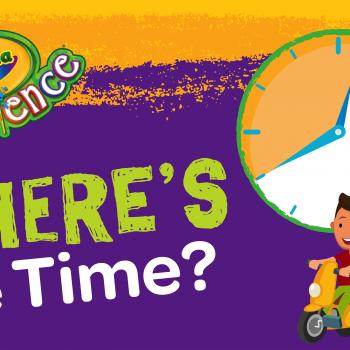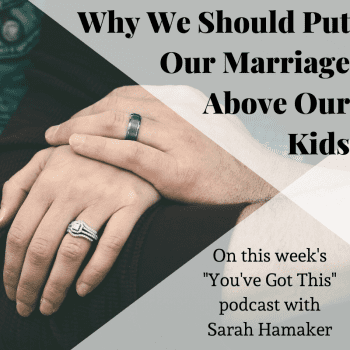 The following is an excerpt from my interview with Jewell Buenavista on my podcast, You’ve Got This.
The following is an excerpt from my interview with Jewell Buenavista on my podcast, You’ve Got This.
Jewell is a mother of two sons and one daughter. She’s very involved in her church as a Christian Family Enhancement district chair, and owns Let’s Talk Seniors Realty Group.
Teaching our kids to be grateful is such a needed topic because we often expect our kids to know how to be grateful.
Jewell: I think the hard part of it is us as parents is because we’re always on the go, and it becomes difficult to stop and help them, and stop and realize okay, maybe they don’t know.
I think we also forget that we’re all selfish creatures at heart. Think of a toddler and the classic toddler tantrum. Why are they having a tantrum? Because they want what they want when they want it. And we carry a bit of that in our own hearts even as an adult. There’s days when I’m cranky and I realize, oh, it’s because I want what I want when I want it, and something is preventing me from getting it.
Jewell: Yes. Even as parents, we’re selfish.
We have that tendency. As Christians, we know that we have so much to be grateful for. We know we have no right to be selfish and yet, again, that little sin, we all carry it with us and we have to constantly fight it. That’s why I think teaching our kids the joys of being grateful, the joys of gratitude, they’re going to carry this through their whole life.
Jewell: In today’s world, it really is a conscious effort to teach them gratitude. Yes. I mean, the YOLO, what’s in it for me? They’re growing up in a society where it’s all about me, me, me, me.
It’s not just about being able to say “please” and “thank you” and to be thankful for what you have. It’s not about finishing your meals because there are starving children in Africa. It goes deeper than that. Can you talk a little bit about why it’s so important to help our kids understand that gratitude is not superficial? It’s really a deep heart issue.
Jewell: First of all, with being Christians, my husband and I truly believe in raising our kids to fully understand that everything comes from God. We are being used as instruments to do whatever work he wants us to do and we can’t forget that. If you do well in your exam or on your test, it’s not because you yourself are smart, it’s because God gave you the wisdom to be able to do well in that, so take the time to pray and say thank you. It’s really important for us to help our kids understand that they are instruments to do a much bigger work than what we see in our own eyes. We want to train them at a young age to fully understand that.
It’s important we realize that we are part of a bigger whole and you start with the family. We start by telling our kids you are part of this family and a family is part of an extended family – aunts, uncles, grandparents, etc. Then we’re part of our neighborhoods and our churches and our schools, and it just keeps getting bigger and bigger. It’s such an essential part of them realizing that they’re not a cog in a wheel of God’s design. They’re an integral perfectly fitted piece to the wonderful mosaic that He’s making.
Jewell: I think it’s important for us parents to demonstrate that. My husband and I were very involved at our church, giving back to the community. Even though we’re busy at work, we showcase that it’s always somehow in line with God’s work, and we verbalize it to them even though as young as they are. Like for example, in my business, I do real estate but I specialize in helping seniors. One of the biggest thing that I say is Ephesians 6:2: Honor your father and mother.
Whatever blessings we receive, we’re thankful for them. But it is conscious parenting in that we use every opportunity to remind us about God. Even things as simple as when my youngest son has a scrape, the first thing we do is we bow our heads. I tell him: “Okay. Why don’t you ask God to heal it?” It doesn’t have to be anything major. Then the next day he runs to me, says, “Wow, it’s healing, mommy.” I say, “Well, see, God’s healing it.” At that very moment, it’s important to say, “Why don’t we take the time to say thank you? Thank you, God for healing my owie.”
They don’t have to be very big moments to take the time to be grateful but every little thing we should have gratitude for. Unfortunately in today’s world because it’s so fast-paced, that unfortunately not too many people are taking the time to do and it’s very self-centered. Our society today is very self-centered and so it’s important that we’re talking about this topic.
I love your point about looking at those small ways for which to be grateful. We want to make sure that we’re really honoring God in how we’re thinking about our gratitude.
Jewell: One thing that I love that our church does is we have what they call an INC giving project where we do outreach events or appreciation to our police, our firefighters, our teachers.
Sometimes, we talk about our police in a negative way—like they’re going to catch us doing something wrong. So when we did our police appreciation day, we took the time to really help our kids understand how our police force they help our community be more safe. We brought goody bags. We brought snacks and stuff, then they wrote letters and cards to the police officers to take the time to actually show how grateful they are. Small and medium and big things, but again, it’s conscious parenting because even if our church had these events, if I don’t take them, then they’re not going to learn the importance of these things. So, it’s conscious parenting to stop and realize I need to help my kids develop gratitude.
When you’re thinking about how to teach your kids gratitude, you don’t have to find organizations to volunteer. But you start with your family and we also start, I think, with helping them realize that contentment component of gratitude.
Jewell: To be honest, it is a difficult task to do especially with almost what’s required today. I mean, with technology, sometimes it’s easier to say, “Okay, I’ll get it for you,” because just as busy parents we are, so we have to catch ourselves from not doing that.
If our children are constantly whining for more things, then they probably have too many because they don’t know how to play with them. We need to help them see what their wants and desires are and what their needs are. This is a huge component to teaching them to be kind of grateful for what they have.
Jewell: This is something that we actually do. We try to on a daily basis take the time to say at least one thing we’re thankful for before we say our family prayers in the evening.
There’s been a lot of studies over the last couple of years about the importance of gratitude, and these are secular studies. We know why gratitude is good because this is how what God calls us to be. But it’s good to remind our kids that having a grateful heart is also good for our hearts.
Jewell: I started journaling with my kids. One of the questions I ask them is three things that made you happy in the last 24 hours. I love what they come up with. We’re focusing on things that make you happy, things that you’re thankful for.
To hear more great advice and stories from Jewell, listen to “Teaching Kids Gratitude” on the “You’ve Got This” podcast.
















